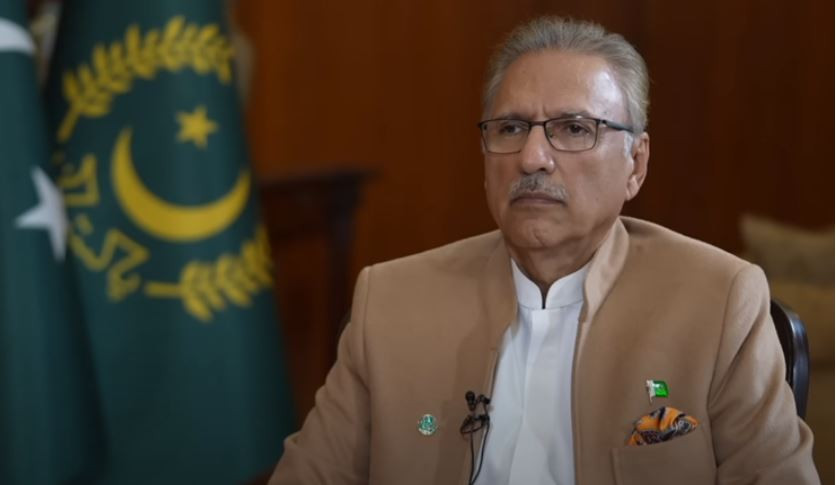
Stung by a surprise blow by the PTI in Punjab, the imperilled PML-N-led ruling coalition could be potentially waiting for the other shoe to drop: a no-confidence motion for Prime Minister Shehbaz Sharif on the advice of President Dr Arif Alvi under Article 91(7) of the Constitution.
As nervous energy silently courses through the PDM’s camp after its dreaded nightmare appears to be on the edge of becoming reality, PTI Chairman Imran Khan may shoot the last remaining arrows in his quiver to replicate the same fate at the Centre the PML-N met in the provinces.
A senior PTI leader told The Express Tribune that the president was entitled to a constitutional right to ask the prime minister to obtain a vote of confidence in the National Assembly, to show that he commands the confidence of majority lawmakers in the lower house of parliament.
However, another senior PTI lawyer tamped it down as “mere rumour”, adding that the move would be ill-advised in the wake of the PTI’s mass departure from the lower house.
Moreover, pulling off the number game in the National Assembly would not be a cakewalk given the likelihood that the 15 PTI lawmakers who formed the parliamentary party after PTI’s government was toppled last year would prefer to repose their confidence in PM Shehbaz.
The move would be counterintuitive since it is not easy for Imran Khan to return to the parliament at the risk of tanking his own narrative, he added.
Echoing the party leader, a political analyst reckoned the rumour could be a mere ‘red herring’ meant as a pressure tactic against the federal government.
Moreover, he said the party was keeping tabs on the recent manoeuvrings in the MQM, sniffing opportunity in PDM’s ally’s possible decision to break away from the rainbow coalition.
Those who are in the know also hinted at the possibility of MQM quitting the federal government.
It is pertinent to note that Article 91(7) says that the prime minister shall hold office at the pleasure of the president, but the president shall not exercise his powers under this clause unless he is satisfied that the prime minister does not command the confidence of the majority of the members of the National Assembly, in which case he shall summon the National Assembly and require the prime minister to obtain a vote of confidence from the Assembly.
In April last year, after an assemblage of opposition leaders toppled the PTI government, Shehbaz Sharif was elected as prime minister of the country with the help of 174 votes. However, more than 15 estranged PTI MNAs did not vote for him.
Subsequently, a Supreme Court’s majority judgment held that vote of defecting lawmakers could not be counted under Article 63-A of the Constitution. The ruling has created a legal hurdle for PM Shehbaz as he may have to totally rely on coalition partners to win the confidence.
‘Alvi can dissolve NA’
Meanwhile, legal experts and lawyers appear divided on the consequences that entail if the prime minister fails to take a vote of confidence on the directions of the president.
A lawyer said that there was no concept of run-off elections after the PM's failure to take a vote of confidence. However, he held that the president was empowered to dissolve the National Assembly in such a scenario.
Meanwhile, it was also learnt that Imran Khan has summoned a meeting of the legal team to discuss strategy to avert chances of his disqualification in Toshakhana as well as foreign funding cases. Imran will also challenge the Election Commission of Pakistan’ (ECP) arrest warrant in the Lahore High Court soon.
On the other hand, sources said PM Shehbaz has summoned a meeting of senior PML-N leaders to discuss the prevailing political situation.
It has been also decided that the governor of Punjab would issue an order regarding the dissolution of the Punjab Assembly on Saturday (today). Sources further revealed that the participants will discuss the nomination of caretaker CMs.
Legal opinion on VoC
Hafiz Ahsaan Ahmad Khokhar advocate said that as per article 91(2) of the Constitution the National Assembly shall meet on the twenty-first day following the day on which a general election to the assembly was held and after the election of the speaker and the deputy speaker, the NA shall elect without debate one of its Muslim members to be the prime minister.
As per the constitutional provisions, the premier shall be elected by the votes of the majority of the total membership of the National Assembly.
He said that as per Article 91(7) of the Constitution, the prime minister shall hold office at the pleasure of the president, and the constitution has also provided a prerogative to the president that if he is satisfied that the prime minister does not command the confidence of the majority of the members of the National Assembly, he can summon the National Assembly and require the PM to obtain a vote of confidence from the Assembly within a reasonable time.
"As per clause (2) of Article 48 of the Constitution, the president can dissolve the National Assembly at his discretion where no other member of the National Assembly can command the confidence of the majority of the members of the National Assembly in accordance with the provisions of the Constitution both in the situation of vote of no confidence succeeded under article 95 of the Constitution against the prime minister or the prime minister fails to get the vote of trust as required by the president under article 91(7) of the Constitution.”
He also said that the provision provided in article 91(4) of the Constitution would not available both in situations if the vote of no confidence has succeeded against the prime minister or the prime minister fails to get the confidence or command of the majority of members of National Assembly in view of Article 91(7) of the Constitution as so advised by the president that, if no member secures a such majority in the first poll for becoming prime minister, a second poll shall be held between the members who secure the two highest numbers of votes in the first poll.
He explained that the member who secures a majority of votes of the members present and voting shall be declared to have been elected as prime minister, and the constitution has provided further that, if the number of votes secured by two or more members securing the highest number of votes is equal, further poll shall be held between them until one of them secures a majority of votes of the members present and voting.
He further stated that in case a prime minister fails to get and does not command the confidence of the majority of the members of the National Assembly, which is in present strength becomes 173 of the total membership for showing as the majority of the House in view of article 91(7) of the Constitution.
Thereafter, if no other member is in a position to get the command of the majority of the members of the National Assembly for becoming the prime minister during the session, especially summoned by the president for the election of a new premier, then consequently the National Assembly would be dissolved by the president under Article 58(2) of the Constitution, and the general election would be held under the umbrella of a caretaker government.







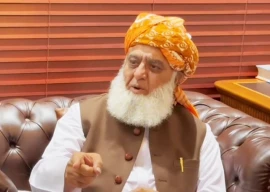
1731842248-0/Untitled-design-(21)1731842248-0-270x192.webp)

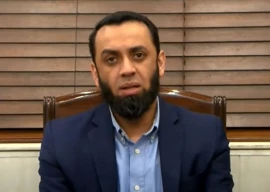

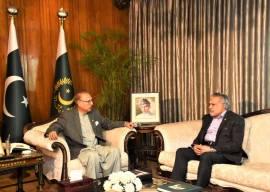
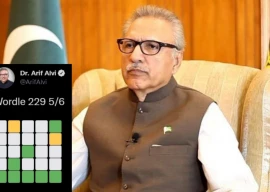






COMMENTS
Comments are moderated and generally will be posted if they are on-topic and not abusive.
For more information, please see our Comments FAQ